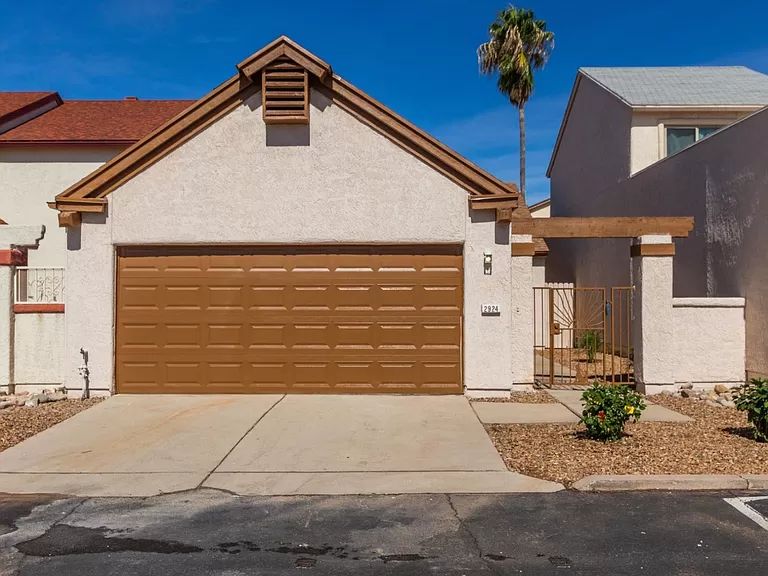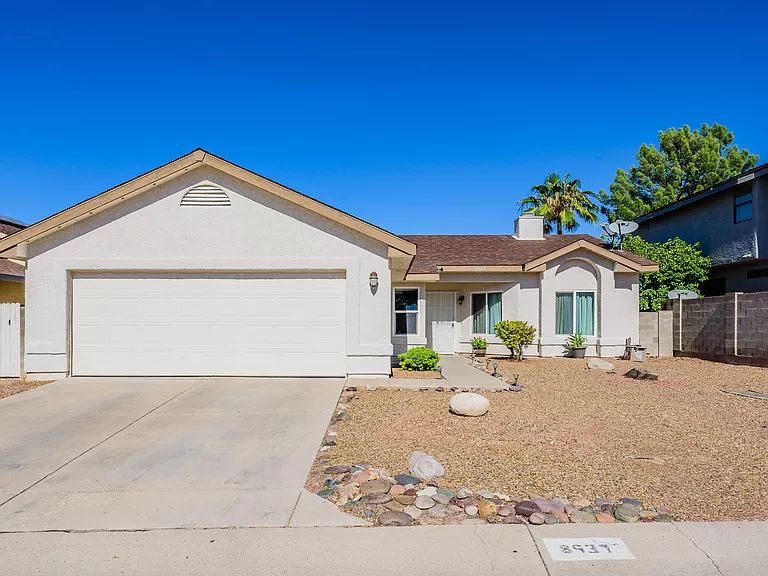Garage Door Emergency Situation - When It Won't Open Up Solutions
Is Your Garage Door Stuck? Right here's What to Do Very first
When your garage door will not open up, start with these vital safety checks before attempting any type of repairs. Initially, make certain no one is standing near the door which automobiles are free from the opening. Seek evident indicators of damages like damaged panels, bent tracks, or hanging cable televisions. If you see a snapped spring or significantly harmed parts, quit immediately and call an expert—-- these fixings require customized devices and experience to handle safely.

Check These 6 Points Prior To Calling an Expert
Prior to assuming you require costly fixings, run through this fast analysis checklist that solves most garage door troubles:
-
Source of power: Verify the opener is connected in and the electrical outlet is working
-
Remote batteries: Change dead batteries in your remote control
-
Hands-on lock: Check if somebody inadvertently engaged the hands-on lock
-
Blockages: Look for particles blocking the door's course or sensors
-
Emergency launch: Ensure the red emergency situation cable hasn't been pulled
-
Breaker: Verify the garage circuit hasn't tripped
These straightforward checks resolve approximately 70% of garage door issues without needing specialist treatment.
10 Usual Factors Your Garage Door Will Not Open
Recognizing why your garage door opener isn't working assists you choose the appropriate option. Here are the most constant causes home owners experience:
Dead remote batteries stand for the most basic solution—-- when batteries pass away, the remote can not send out signals to the opener. Power failures or tripped breakers cut electrical power to the motor. Broken springs stop the door from lifting correctly and require immediate expert interest. Sensing unit misalignment reasons safety and security systems to block door procedure. Track obstructions quit rollers from relocating smoothly. Motor overload triggers automated shutoffs when the opener detects resistance. Limit button problems confuse the opener regarding door position. Cable damage disrupts the lifting mechanism. Weather-related issues affect door motion during extreme temperature levels. Element wear from age gradually lowers system efficiency.
Problem # 1: Dead Push-button Control Batteries
When your wall button works but your remote doesn't, dead batteries are normally the offender. A lot of garage door remotes use either 3-volt lithium or 12-volt alkaline batteries. Eliminate the back cover of your remote and inspect the battery kind. Replace with fresh batteries and test the remote. If it still does not work, you might require to reprogram it to your opener. Consult your opener's guidebook for particular reprogramming directions, as the process varies by supplier.
Trouble # 2: Power Supply Issues
Garage door power issues usually stem from loose links or stumbled circuits. Check that the opener is securely plugged into its outlet—-- resonance can loosen up connections gradually. Check the electrical outlet with one more device to verify it's working. Examine your home's breaker box for tripped circuits, particularly if you've experienced storms or power changes. GFCI outlets may have tripped and need resetting. If the opener has power however will not react, the concern likely lies somewhere else in the system.
Problem # 3: Broken or Damaged Springs
Busted garage door springs are among the most unsafe elements to manage. If you listen to a loud bang from your garage or see the door really feels very hefty when trying to lift manually, a spring has actually most likely snapped. Torsion springtimes run horizontally over the door, while expansion springs remain on either side. Never attempt springtime repairs on your own—-- these elements save remarkable tension that can cause major injury or death. Expert substitute commonly costs $150-$300 yet ensures your safety.
Problem # 4: Obstructed Safety And Security Sensors
Modern garage doors include safety and security sensors that protect against closure when objects are found. These sensing units can stop the door from opening up if they're dirty, misaligned, or blocked by particles. Clean sensing unit lenses with a soft cloth and guarantee absolutely nothing obstructs the unseen light beam in between them. Inspect that sensing units are effectively lined up—-- a lot of have sign lights that reveal connection condition. Sensor troubles typically resolve with straightforward cleansing and change.
Problem # 5: Track Obstructions or Damages
Garage door tracks guide rollers as the door moves up and down. Dirt, particles, old oil, or small objects can jam the system. Inspect tracks aesthetically and eliminate any obstructions with a brush or towel. Try to find damages, flexes, or bending that might hamper smooth procedure. Minor track adjustments are possible for helpful house owners, however considerable damage calls for specialist fixing to stop more troubles or safety dangers.
Problem # 6: Garage Door Opener Electric Motor Issues
When the garage door electric motor runs but the door does not relocate, several concerns could be responsible. The electric motor might be strained and shutting down as a precaution. Gear wear, especially in older devices, can avoid correct procedure. Chain or belt drive problems affect power transmission. If you listen to unusual grinding, clicking, or humming sounds, quit making use of the opener right away. Electric motor repairs commonly cost greater than replacement, specifically for units over ten years old.
Step-by-Step DIY Troubleshooting Guide
Follow this organized approach to garage door repairing while prioritizing safety throughout the procedure:
Action 1: Check the wall surface button first. If it works yet the remote does not, focus on remote issues. If neither jobs, check power supply.
Action 2: Analyze the hand-operated launch cable. If it's been pulled, the opener is disengaged from the door. Push the trolley back to reconnect.
Step 3: Manually examine the door by disengaging the opener and attempting to lift the door by hand. It should move efficiently and remain in area when half-open.
Tip 4: Check visible components for damage, paying unique attention to springtimes, wires, and tracks.
Step 5: Examine all safety features consisting of sensing units, limitation switches, and auto-reverse functions.
Step 6: Test various controls (remote, wall switch, keypad) to separate the issue source.
Always put on shatterproof glass and work gloves when performing inspections, and never effort repair work on springtimes or high-tension elements.
When to Call an Expert vs. do it yourself Solutions

Knowing when to call a garage door specialist versus attempting DIY repairs shields both your security and your pocketbook. Deal with these concerns on your own: dead remote batteries, power supply issues, small track cleaning, sensor cleansing and placement, and basic lubrication.
Never ever try these repairs on your own: spring replacement or modification, wire repair work, significant track realignment, electrical circuitry concerns, opener electric motor replacement, or any type of fixing involving high-tension components. Expert professionals have actually specialized devices, training, and insurance to take care of hazardous repairs securely.
Think about repair service costs versus substitute costs, particularly for doors over 15 years old. garage door maintenance checklist for homeowners Modern garage doors supply far better safety attributes, power efficiency, and dependability than older models.
Emergency Garage Door Solutions
When you're stuck to a garage door that will not open up and need prompt gain access to, comply with these emergency situation treatments:
Manual Operation: Draw the red emergency situation release cord to disengage the opener. This permits manual operation but calls for proper method to prevent injury. Lift the door slowly and equally, utilizing leg muscles as opposed to your back. Most property doors evaluate 100-150 pounds, making them workable for the majority of grownups.
Temporary Repairs: If the door opens by hand but will not stay up, prop it open with sawhorses or clamps—-- never utilize your body or automobiles as supports. For doors that will not close totally, ensure the opening is protected if you should leave.
Emergency Solution: Lots of garage door companies offer 24/7 emergency solution for scenarios entailing safety and security concerns, caught automobiles, or total system failures. While much more costly than routine solution calls, emergency situation repair services give immediate solutions when required most.
Safety and security Warning: What NOT to Do
Garage door security requires comprehending hazardous fixings that need to never ever be tried by house owners:
Never ever attempt to fix springtimes—-- they keep sufficient energy to cause deadly injuries when they snap or are poorly dealt with. Do not require a stuck door—-- this can damage the opener, tracks, or door panels, producing much more costly problems. Stay clear of bypassing security features—-- sensing units and auto-reverse mechanisms stop serious injuries and residential property damages.
Do not overlook strange noises—-- grinding, scuffing, or banging noises show problems that get worse with time. Never utilize the door if wires are frayed or damaged—-- the door might fall all of a sudden. Don't try electric repairs unless you're a certified electrician—-- garage door openers use both 120V home present and low-voltage control circuits.

Precautionary Upkeep to Stay Clear Of Future Troubles
Normal garage door upkeep prevents most typical issues and prolongs system life expectancy substantially:
Month-to-month Jobs: Visual examination of all elements, examining auto-reverse safety attributes, checking and tightening hardware, and cleansing tracks and sensing units.
Quarterly Jobs: Lubing all moving parts with ideal garage door lubricant, testing manual procedure, and examining weather condition sealing.
Annual Tasks: Specialist inspection and tune-up, spring modification if required, and opener maintenance including belt or chain modification.
Seasonal Jobs: Planning for climate extremes, checking insulation, and readjusting opener setups for temperature level adjustments.
Constant maintenance costs much less than emergency situation repair work and guarantees reliable procedure year-round.
Garage Door Will Not Open Up FAQs
Why won't my garage door open with the remote yet works with the wall surface button?
This usually indicates dead remote batteries, signal disturbance, or the need to reprogram the remote. Check batteries first, then consult your opener manual for reprogramming guidelines.
Can I by hand open my garage door if the power is out?
Yes, draw the red emergency launch cord to disengage the opener, then lift the door by hand. Be planned for the door's full weight and lift with appropriate strategy to prevent injury.
How do I understand if my garage door springtime is broken?
Indications consist of a loud bang from the garage, the door feeling extremely heavy when raising manually, noticeable voids in the springtime coils, or the door just opening a few inches prior to stopping.
Is it risk-free to use my garage door if it won't open completely?
No, partial operation suggests mechanical problems that can worsen unexpectedly. Stop making use of the door and have it checked by a specialist to avoid further damages or injury.
What should I do if my garage door opens however won't close?
Examine security sensing units for obstructions or imbalance, examine the tracks for particles, and test the auto-reverse feature. If these don't fix the issue, speak with a specialist.
How much does it cost to take care of a garage door that will not open up?
Prices vary commonly depending on the problem: battery substitute ($5-$10), expert diagnosis ($50-$100), spring replacement ($150-$300), or opener replacement ($200-$500).
Can weather impact my garage door's capability to open?
Yes, severe cold can enlarge lubes and impact steel components, while warm can create development issues. The majority of issues settle as temperatures stabilize, however relentless issues might need specialist attention.
Why does my garage door open up a few inches after that stop?
This generally suggests busted springs, restriction button troubles, or track obstructions. The opener's safety features quit operation when resistance is detected, avoiding damage to the electric motor or door.
Get Professional Aid for Facility Problems
When DIY troubleshooting does not settle your garage door issues, professional specialists provide the proficiency and devices needed for secure, long lasting repairs. Certified specialists identify problems accurately, use manufacturer-approved components, and offer warranties on their work.
Expert services consist of: comprehensive system evaluations, spring and wire substitute, opener repair and substitute, track positioning and substitute, electric troubleshooting, and emergency service telephone calls.
What to expect: in advance prices, qualified and insured technicians, same-day solution for lots of repair work, and follow-up maintenance referrals.
The majority of garage door companies use free estimates for major repair work and can supply immediate remedies for immediate problems influencing home safety and security or automobile access.
Getting Your Garage Door Working Again
A garage door that will not open up does not need to wreck your day or break your budget. Begin with straightforward troubleshooting steps like inspecting power, replacing batteries, and analyzing for apparent blockages. Many troubles have fast DIY services that restore normal operation within minutes.
However, recognize when expert aid is needed—-- specifically for spring-related problems, electric troubles, or facility mechanical failures. Trying dangerous repair work on your own runs the risk of major injury and typically creates more expensive issues.
Routine upkeep avoids most garage door concerns and ensures reputable procedure for years to find. When troubles do occur, address them immediately to avoid more pricey repairs and keep your home's protection and comfort. Whether you require a simple battery substitute or total system overhaul, services exist to obtain your garage door working efficiently once more.